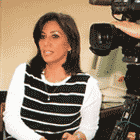17 Jan 2012 | Africa, Index Index, minipost
21 journalists were detained by security forces in Somalia over the weekend, following demonstrations against ongoing media crackdowns. Police stormed the main headquarters of HornCable TV and two production studios of the television network, in the capital town Hargeisa on Saturday. The following day, at a peaceful protest organised by the journalists, the presidential guard attacked protesters, and arrested 18 staff members from HornCable TV. Police hunted down other journalists who took part in the protest and arrested them. All 21 detained journalists were released yesterday.
17 Jan 2012 | Leveson Inquiry
Lord Justice Leveson has today made suggestions that a new model may need statutory backing in order to “give some authority to independent regulation”.
The judge made the remarks while discussing today’s Times leader article defending a free press with the paper’s editor James Harding at the Leveson Inquiry.
While in favour of a “sufficiently robust” system, Harding expressed concerns that a “‘Leveson act’ would give politicians the ability to loom over press coverage”, which he said would have a “chilling effect” on press freedom.
“I do not want journalists from The Times, years from now, walking into the offices of politicians and behaving in a certain way,” he added later, reiterating his fear of reporters submitting to political influence.
Leveson was blunt: “Watch my lips”, he told Harding, adding that his mind was not yet made up. He said that the issue of regulation needed to be solved suitably by the press, adding, “it’s got to work for the public as well.”
Leveson also made it abundantly clear more than once today that he was not looking into mandatory prior notification.
Earlier in his testimony, Harding also said his proprietors “never raised a finger” to stop the Murdoch-owned title covering the phone hacking scandal that engulfed the News of the World last summer.
When asked if The Times was slow to cover the phone-hacking scandal perhaps due to external pressures, Harding said that his paper followed up on the Guardian’s original story in summer 2009.
Following last summer’s revelations over the hacking of murdered teenager Milly Dowler’s phone, Harding said the Times featured the story “on the front page for about three weeks”, criticising the News of the World and News International.
Harding added: “Looking back I certainly wish we’d got on the story harder, earlier. The reality is that both the police and News International poured cold water on the story.”
Follow Index on Censorship’s coverage of the Leveson Inquiry on Twitter – @IndexLeveson
17 Jan 2012 | News and features

A year on from the uprising which ousted Hosni Mubarak, Egyptians are still waiting for media reforms. Shahira Amin reports
(more…)
17 Jan 2012 | Leveson Inquiry
Private Eye editor Ian Hislop has spoken out against further press regulation, arguing that “if the state regulates the press then the press no longer regulates the state”.
Hislop told the Leveson Inquiry that the British press faces substantial regulation, adding that the worst excesses of the press occurred due to poor enforcement. He highlighted that many of the “heinous crimes” addressed by the Inquiry, namely phone hacking and contempt of court, are already illegal.
“I believe in a free press and I don’t think it should be regulated, but it should abide by law,” he said.
Hislop also lamented the “deeply embedded” involvment among senior politicians and News International, and urged Lord Justice Leveson to call the Prime Minister, Tony Blair and Gordon Brown to give evidence.
During his evidence, which at times resembled a debate than testimony, he alluded to France’s stringent privacy law, which he labelled “draconian”. The French “are catching up with two decades of news because of the reluctance to look at private lives of people who ran them”, he said.
Hislop also spoke out against prior notification, detailing how, when stopped from running a story about Law Society president Michael Napier, his magazine spent £350,000 while the application for an injunction went through. “The lesson I learned was not to give prior notification,” he said, adding later that privacy had become “more of a problem than libel” in the UK.
Yet he called libel arbitration a “waste of time”, noting he would “rather end up in the courts because that’s where you end up anyway.” He told the Inquiry that, since 2000, his magazine has faced 40 libel actions.
Also speaking this morning was News International CEO Tom Mockridge, who took over from former chief Rebekah Brooks in the wake of the phone hacking scandal last summer. Mockridge upheld the British press for “its extent of competition, choice and ability to report with freedom”, noting that many outside the country look at the press with “jealousy”.
Following a discussion of the regulatory models of Italy and Hong Kong, Mockridge disagreed with Lord Justice Leveson’s distinction between state regulation and a mechanism of statutory backing in a self-regulatory body. “If the state intervenes, the state intervenes,” he said, noting that it would “diminish a free press”.
Follow Index on Censorship’s coverage of the Leveson Inquiry on Twitter – @IndexLeveson

